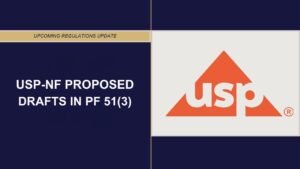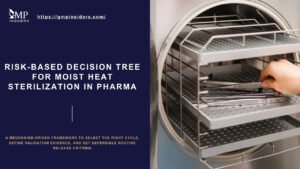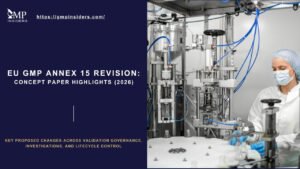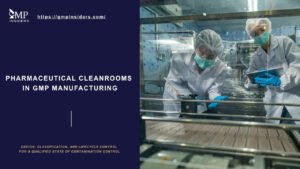Table of Contents
A recent product recall has been issued for a single batch of Atovaquone Oral Suspension (750 mg/mL), a medication commonly prescribed to prevent Pneumocystis jirovecii pneumonia in both adults and adolescents. The recall was initiated after the product was found to be contaminated with Cohnella bacteria, raising significant safety concerns, especially for immunocompromised patients who rely on this treatment.
Regulatory Oversight
This recall is being conducted under the supervision of the U.S. Food and Drug Administration (FDA). Bionpharma (Princeton, NJ) is cooperating with regulatory authorities and keeping its customers informed about the recall.
Root Cause Analysis
The contamination was traced to the manufacturing process at CoreRx, Inc. in Clearwater, Florida (Distributed by Bionpharma Inc.). Cohnella bacteria, known for its resilience in certain environments, posed a serious contamination risk to this pharmaceutical product.
Possible Contributing Factors
A proposed root cause analysis for the contamination of Atovaquone Oral Suspension with Cohnella bacteria could include the following potential contributing factors:
- Environmental Contamination: Cohnella bacteria, which are commonly found in soil and water, may have entered the manufacturing environment due to insufficient environmental controls, such as inadequate air filtration or gaps in facility hygiene protocols.
- Sterilization Failures: There may have been lapses in the sterilization processes for manufacturing equipment, containers, or materials, allowing bacterial contamination during production. The sterilization methods used should be re-evaluated for effectiveness, particularly for resilient bacteria like Cohnella.
- Water Quality Issues: Since Cohnella bacteria can thrive in certain water sources, the quality of water used in the production process, including purification and filtration systems, could have been compromised, leading to contamination.
- Raw Material Contamination: The contamination could have originated from raw materials that were exposed to bacteria prior to entering the production facility. A thorough review of supplier controls and raw material handling practices is warranted to rule out this possibility.
- Cross-Contamination Risks: There may have been inadequate segregation between different production areas or insufficient cleaning of shared equipment, leading to cross-contamination of the product with bacteria.
Proposed CAPA Plan
A proposed Corrective and Preventive Action (CAPA) plan to address the contamination of Atovaquone Oral Suspension could include the following steps:
Corrective Actions
- Recall of the Affected Batch: Immediate recall of the contaminated batch to prevent further distribution and potential harm to consumers.
- Enhanced Cleaning and Sterilization Protocols: Strengthen and implement more rigorous cleaning and sterilization procedures at the manufacturing facility to eliminate microbial contamination risks.
- Thorough Investigation: Conduct a detailed root cause investigation, including microbial testing of the environment, materials, and equipment involved in the production of the contaminated batch.
- Product Testing and Monitoring: Increase testing for microbial contamination in both finished products and during intermediate stages of production to ensure no further contamination.
Preventive Actions
- Revised Microbial Control Measures: Improve existing microbial monitoring systems, including more frequent environmental sampling, especially in high-risk areas of the facility.
- Vendor Qualification and Monitoring: Review and reinforce supplier qualifications, particularly for raw materials and water sources, to ensure they meet GMP standards for sterility.
- Process Validation and Equipment Maintenance: Revalidate critical manufacturing processes and review equipment maintenance schedules to ensure optimal performance, particularly in areas such as water purification and sterilization.
- Employee Training: Implement enhanced training programs for all employees involved in production, with a focus on aseptic processing, environmental controls, and GMP standards to ensure a stronger understanding of contamination risks.
- Audit and Review Procedures: Conduct more frequent internal audits and performance reviews of the quality control processes to identify potential vulnerabilities before they lead to contamination.
Potential Health Risks
In the most vulnerable population—those who are immunocompromised—there is a significant risk of severe infections if the contaminated product is used. Possible health effects include:
- Disseminated, life-threatening infections.
- Inflammation of the heart.
- Permanent damage to soft tissue.
No adverse events related to this recall have been reported to date, but Bionpharma has taken this issue seriously due to the potential severity of risks.
Conclusion
Bionpharma’s proactive recall of the affected batch of Atovaquone Oral Suspension demonstrates the company’s commitment to patient safety and regulatory compliance. Although no adverse events have been reported so far, the potential risks posed by bacterial contamination, especially to immunocompromised individuals, necessitate swift and decisive action. By collaborating with the FDA and enhancing its quality control measures, Bionpharma aims to prevent future occurrences and ensure that its products continue to meet the highest safety standards. The company remains dedicated to transparency throughout this process, keeping its customers and healthcare providers informed and prioritizing consumer well-being above all.















